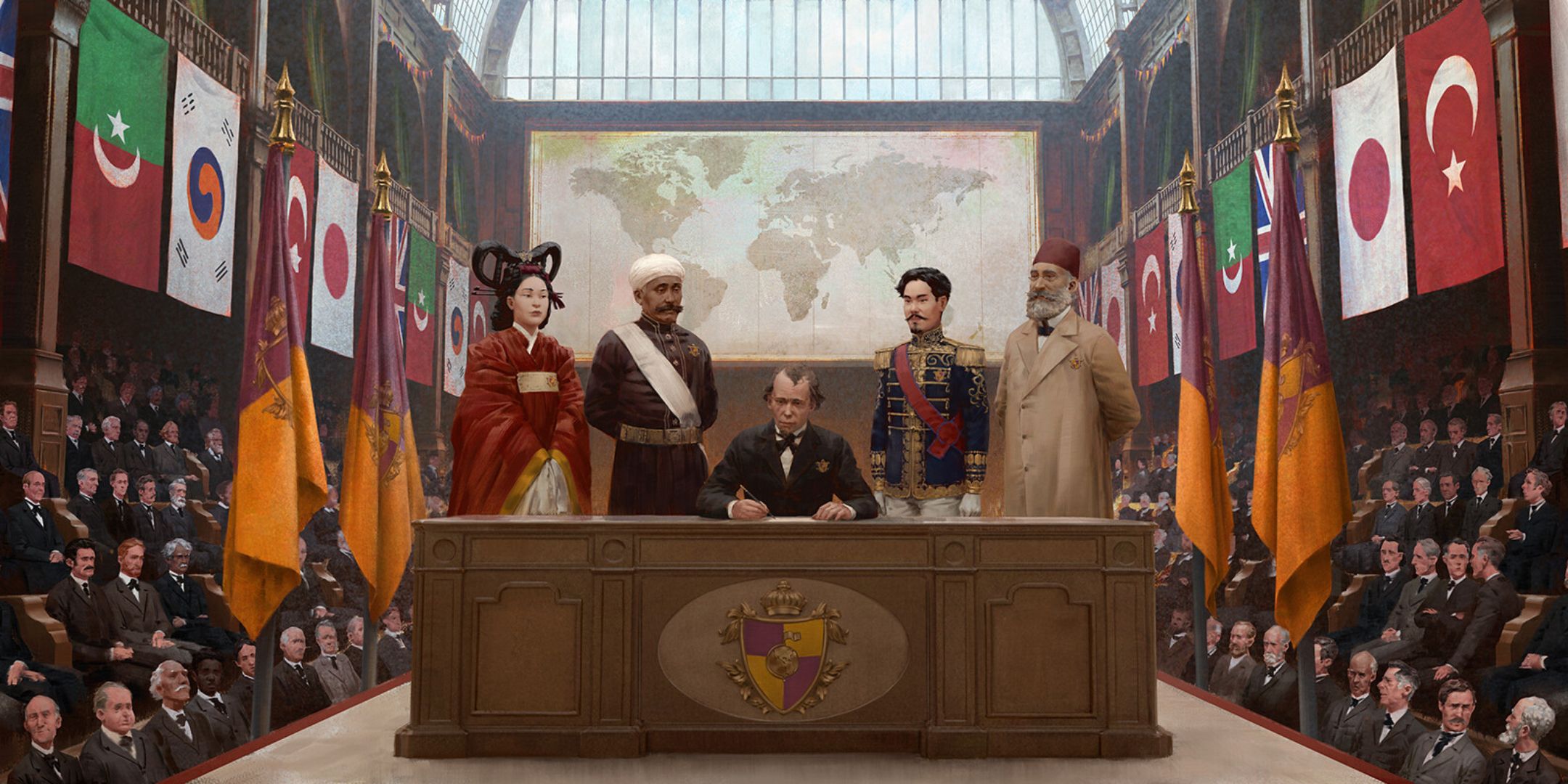Victoria 3: Sphere Of Influence - How To Create A Power Bloc

Victoria 3 has always been about throwing your weight around on the world stage, and the Sphere of Influence expansion gives you even more ways to do so. Chief among these are the new Power Blocs, which let multiple nations band together for a common cause... ideally under your steadfast leadership, of course.
RelatedVictoria 3: Companies, Explained
Victoria 3 lets you take control of historical and fictional corporations to boost your economy!
PostsPower Blocs have the potential to dramatically change the diplomatic situation of a given campaign, change the economic fortunes of a regeion, or cut a militaristic empire down to size. Here's everything you need to know about starting one and why you should.
How To Form A Power Bloc
The Power Blocs tab can be found on the left side of the screen, between the Military and Diplomacy tabs. Its default hotkey is F6. It shows all Power Blocs currently in existence. You can form your own Bloc at any time by presssing the Form A Power Bloc button at the bottom of the tab.
When forming a Power Bloc, you can choose its name, emblem, and statue, or simply randomize them. You must also select the Bloc's Central Identity Pillar (i.e., what kind of Power Bloc it will be) and one Principle, which is a bonus that it will grant any nations who join.
Once you've made all your selections, press the Form This Power Bloc button at the bottom of the tab to finalize your decision, and declare your intentions before the world!
RelatedVictoria 3: The 5 Easiest Nations To Play As
Not every country has the same goals, or struggles, after all.
PostsAll Power Bloc Types
Power Blocs are very similar to Federations in Stellaris. They work best when comprised of like-minded nations who share a goal. That's why it's important to choose a Central Identity Pillar that not only fits your strategy, but will encourage your potential allies to join.
Sovereign Empire
A Sovereign Empire consists of a large, powerful nation and their subjects. This type of Bloc is all about empowering the overlord and bringing more vassals into the fold. Few nations join such a Bloc by choice, but doing so might be the only way to avoid a costly war or prevent subjugation by an even more tyrannical suzerain.
The longer a Sovereign Empire is maintained, the ruler can add Principles that allow them to enhance their vassals, increasing their usefulness. Alternately, they can exploit their subjects, inflicting penalties on them for bonuses to the leader.
Britain, Russia, and the Ottomans start the game as leaders of Sovereign Empires.
Trade League
A Trade League replaces the old Customs Union mechanic, and allows its members to merge their markets without vassalization. It's a great way for smaller countries to gain access to wealthy markets, or for mid-size nations to pool their resources.
Trade Leagues can focus on improving production and wealth among their members, or leverage their combined economic power to get better trade deals from non-members.
Prussia starts the game as the leader of the Zollverein Trade League.
Ideological Union
An Ideological Union represents a commitment between countries with similar Laws to maintain their current form of government and possibly spread it abroad. Members are encouraged to match their Government and Distribution of Power Laws to those of the Leader, and get bonuses to efficient lawmaking in return.
If a member changes government types, the Bloc Leader can force them to change it back.
Austria starts the game as the leader of an Ideological Union.
Military Treaty
A Military Treaty takes a while to build up, but if allowed to grow and flourish it can create an unstoppable force. The Leader gets a free Demand when supporting their fellow members in wars, while the other members train soldiers faster to better stand up to their foes.
Military Treaties can be developed into ironclad multilateral defensive pacts or a dangerous tool of strong-arm diplomacy, threatening your rivals to give you what you want or face your Bloc's combined wrath.
Religious Convocation
A Religious Convocation is a pact between countries that share the same religion. It aims to strengthen and spread its faith, both within its borders and externally. You can use the Bloc's fervor to improve diplomacy with other countries of the same faith, eventually bringing them into the fold, or to extort extra taxes from those who haven't yet seen the light.
Naturally, Religious Convocations are much stronger if your country follows a religion that has a large global following.
Growing And Improving A Power Bloc
Each Power Bloc has a Cohesion rating, which is based on how well the member states are getting along. It's important to maintain good relations with all the members of your Bloc, possibly even funding lobbies within their governments if necessary. The higher your Cohesion, the faster your Bloc will earn Mandates, which can be spent to gain new Principles or level up existing ones.
You can save up to three Mandates. It still takes years to get one even at the best of times, so spend them wisely!
To invite a new member to your Power Bloc, you need to have sufficient Leverage over them. Any country that isn't already in a Power Bloc has 1000 Leverage, which they normally keep for themselves. Improving relations, offering war support, signing treaties, and other positive interactions with a member of a Bloc will give that Bloc a greater share of the country's Leverage... as does forcing economic dependence on them or coercing them by other means.
If a Bloc has 200 more Leverage with a country than the next-highest Bloc, they may invite that country to join as a member. Usually, by that point relations will be positive enough that the country will accept, but sometimes an Obligation will be necessary to sweeten the deal.
RelatedVictoria 3: How To Form New Nations
One of the most satisfying experiences Victoria 3 has to offer is successfully launching a unification play to form a new country.
Posts












